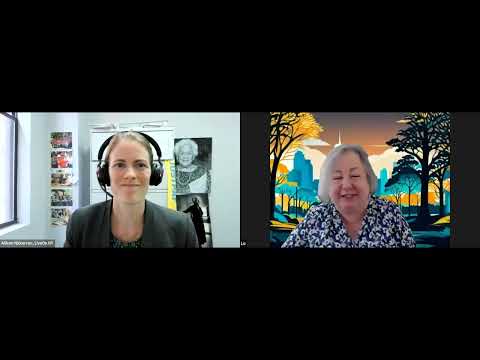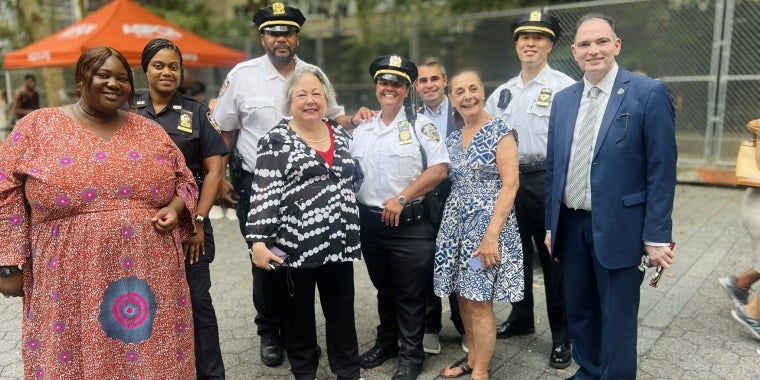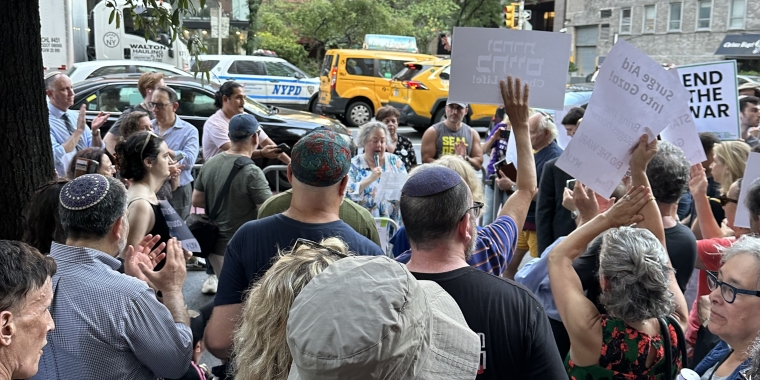
July 2010 Community Bulletin
Liz Krueger
August 10, 2010
-
ISSUE:
- Constituents Corner
What's Inside:
MESSAGE FROM LIZ
COMMUNITY SPOTLIGHT
- New Voting Machines for Fall 2010 Election
- Wanted: Election Day Inspectors and Interpreters
- Cooling Assistance for People with Heat-Related Medical Issues
- Rebates on New Energy Star Air Conditioners
- Free Legal Advice on Immigration Issues
POLICY SPOTLIGHT
- Illegal Hotels
- Bicycles and Pedestrian Safety
Message from Liz . . .
After yet another challenging month in Albany I can report that while there is still a lot that needs to get done, there has been headway on many significant issues: The State now has something resembling a budget and the legislature did pass significant policy driven legislation. Below is a brief summary of where things stand
First, on the budget front, I will try to clarify where we stand now and what outstanding issues remain. The legislature has passed the various pieces of the expenditure budget totaling $135.7 billion, just a two percent increase over 2009-10, and has technically closed most of the $9.2 billion budget gap. After both houses passed these bills, the Governor promptly vetoed all legislative adds, including $600 million that the legislature restored to K-12 education funding.
This happened primarily because the Governor and legislature were unable to come to an agreement over two key issues:
- A contingency fund to deal with the possible loss of Federal Medical Assistance Percentages (FMAP) funding, which as of yet has not been approved by Congress;
- The Governor’s proposal to grant greater independence to the State and City University systems, including the ability to set their own tuition rates.
I do not expect that the Senate will override any of the Governor’s vetoes, since the Republicans have indicated that none of their members will contribute to the 42 votes (2/3 majority) needed to override a veto. What I hope will happen are some serious negotiations about how to better address the differences between the Governor and the legislature’s plans, including the consideration of a number of revenue raising proposals, such as allowing the sale of wine in grocery stores and the sugar tax (neither of which are included in the legislative revenue proposal to date).
This brings me to the final piece of the budget, the revenue bill. As of now the revenue bill has not been voted on in the Senate because a number of Democrats have indicated they won’t support it due to the exclusion of the Governor’s SUNY and CUNY proposal. In our closely divided Senate, any one member can stop something if it is a party-line vote, and the budget is a perfect example of this. The good news is that most of the revenue issues have already been addressed in the extenders we’ve been passing each week while trying to get to a final budget. The bad news is that at some point we will have to figure out a final revenue deal that is acceptable to 32 members of the Senate, which we’ve learned is not an easy feat. Therefore, I am sure I will be returning to Albany in the not-too-distant future for further budget discussions.
Turning to the legislative front, I was particularly pleased that bills I sponsored dealing with illegal hotel conversions in residential buildings and enforcement of rules against bicycles on the sidewalk passed the Senate. More details on both these issues is included in the Policy spotlight section below.
Other key legislation that I co-sponsored and worked hard for that passed in June includes:
• The Dignity for All Students Act: Anti-bullying legislation that had been held up for years when the Republicans controlled the Senate because it included language dealing with sexual orientation;
• No-Fault Divorce: New York becomes the last state to allow divorce without requiring either partner to accept blame, while also providing protections to ensure adequate representation for a spouse without access to his or her own resources;
• Prior Approval for Health Insurance Premium Increases: Restored the ability of the State Insurance Department to evaluate proposed rate increases, which was taken away in the early years of the Pataki administration;
• Insurance Coverage for Children with Autism;
• The Domestic Workers Bill of Rights: Established labor standards and protections from harassment and abuse for domestic workers.
Of course, there is a long list of what we still need to fight for and when we go back to work on the final piece of the budget I will push to resolve this unfinished business, including strengthening protections for tenants and placing a moratorium on the use of hydrofracking for natural gas drilling. One thing I have learned in the last couple of years in Albany is that unpredictability can change the current environment, creating opportunities to move beneficial legislation. I will be keeping my eyes out for those opportunities in the days ahead.
----
COMMUNITY SPOTLIGHT
New Voting Machines for Fall 2010 Election:
Beginning in Fall 2010, voters in New York City will vote using a paper ballot and optical scanner system. To help voters feel comfortable marking a paper ballot and using the new poll site voting system, the Board of Elections is conducting a comprehensive voter education program throughout New York City’s five boroughs. It includes a multi-language website and advertising campaign, along with voting system demonstrations conducted in communities across the City. Learning Centers are open in each Board Borough office, allowing voters to have a hands-on experience using a paper ballot and the new voting system.
Find out more about the new way to vote at www.vote.nyc.ny.us or by calling 866-VOTE-NYC (866-868-3692). If your community organization would like to request a demonstration of the poll site voting system, submit your request to Demo@boe.nyc.ny.us.
The Board of Elections is also recruiting for Election Day Inspectors and Interpreters:
Applications are available at the Board’s website. For additional questions, contact Valerie Vazquez-Rivera, Director, Board of Elections in the City of New York, Communications and Public Affairs, at VVazquez@boe.nyc.ny.us or (212)487-5404.
Cooling Assistance for People with Heat-related Medical Issues:
Households that include a member who has an ongoing medical condition that is made worse by extreme heat may be eligible for cooling assistance through the Home Energy Assistance Project (HEAP), that could include installation of an air conditioner. Applicants must be receiving HEAP, or meet other income-related requirements, and have a documented medical condition that is exacerbated by heat. Apply in person at 2 Washington Street, 8th Floor., or call 212‐227‐2784 for more information. Applications will be accepted through August 13th on a first-come, first-serve basis until funding runs out.
Rebates on New Energy Star Air Conditioners
Con Edison is offering $30 rebates on Energy Star certified air conditioners purchased between May 14th and July 14th 2010. ENERGY STAR room A/Cs are at least 10 percent more efficient than standard models and many include timers that let you use the least amount of energy needed to cool a room. For an application for the rebate go to http://coned.com/energyefficiency/energystar.asp or call 1-877-870-6118.
Free Legal Advice on Immigration Issues:
Housing Conservation Coordinators offers free legal service for Immigration related issues. Intake will take place on July 6th, July 27th, August 10th and August 24th, from 5 p.m. - 8 p.m. at 777 Tenth Avenue at 52nd Street. Please call (212)-541-5996 to make an appointment and bring all relevant documents.
----
POLICY SPOTLIGHT
Illegal Hotels
Tenants and tourists in New York City would be protected by a new law that will make it clear that operating a residential apartment as a transient hotel is illegal in New York City. The bill (S.6873/A.10008), which I sponsored along with Assembly Member Richard N. Gottfried, will put an end to the rampant spread of illegal hotels by clarifying ambiguities in State and City laws which made it impossible for government agencies to effectively crack down on offenders and protect residents. The legislation passed the Senate late last week, and was approved by the Assembly on Thursday. It now goes to Governor David Paterson to be signed into law.
The proliferation of illegal hotel operations has removed thousands of apartments from an already tight housing market, disrupted the lives of the permanent residents who live in the buildings, and decreased the City’s tax base. Landlords rent apartments as hotel rooms to get more money than the rent laws allow, or to empty out a building for a co-op or condo conversion.
Furthermore, because illegal hotels do not comply with the local building, fire, and housing codes that are required for buildings zoned for transient occupants, they pose a serious threat to public safety. New York City residents have not been the only victims of illegal hotels. Because the internet has made it easier than ever to advertise illegal hotels, most tourists have no idea they have not made reservations at legitimate hotels until they arrive at their destination. Such deception ruins many visitors’ experiences and harms New York City’s reputation as a tourist-friendly city.
While New York City agencies have worked hard to crack down on illegal hotels, a recent Appellate Division Court decision has been crippling that effort. The court decision ruled that the transient use of a residential building is permissible if less than half of the units are being used for transient uses. This legislation makes it clear that all “Class A multiple dwelling” units may only be used for permanent residence purposes, which is defined as occupancy by a person or household for 30 consecutive days or longer.
The bill contains appropriate exceptions for roommates, boarders, etc. who live or rent in the unit with the permanent occupants, or while the permanent occupants are temporarily absent and nothing is being paid. The bill would also give a small number of buildings that have historically operated as hotels prior to the enactment of the Multiple Dwelling Law, or were legally operating as hotels under the pre-1961 zoning, time to comply with relevant building codes for transient use.
This is a real win-win for New York City residents and visitors. Residents will no longer see their apartment buildings overrun by transient tourists and visitors will no longer have to worry about arriving to find that their ‘hotel’ is actually an apartment building.
The bill is supported by Mayor Michael Bloomberg, Manhattan Borough President Scott Stringer and the Manhattan Borough Board, Housing Conservation Coordinators, Goddard-Riverside West Side SRO Law Project, the Association for Neighborhood and Housing Development, West Side Neighborhood Alliance, the Hotel Association of New York City, and the Hotel and Motel Trades Council.
Bicycle and Pedestrian Safety
Late last month, the Senate passed my bill S4528-A , which will curtail the threat of commercial bicyclists’ reckless cycling in New York City. This legislation, sponsored by Assembly Member Brian Kavanagh (D-Manhattan) in the Assembly, provides for liability to be shared between the operator of the bicycle and the business employing or affiliated with the cyclist. City Council Member Jessica Lappin sponsored the home rule message that helped enable the bill to be passed in the Senate.
The intent of this bill is to address the growing problem that sidewalks in New York City’s most crowded neighborhoods have been taken over by speeding delivery bicyclists. By riding on sidewalks instead of the streets, these delivery bicycles pose a serious risk for community residents on foot -- particularly seniors and young children. Currently the police can only ticket the bike rider, however under the new law the businesses that employee these reckless riders will face the fine. When a business has a vested monetary interest in its employees following the “rules of the road,” they will be motivated to educate their delivery people to follow the law. This will act as a very strong deterrent for the kinds of reckless activities which injure and sometimes kill pedestrians.
This has been a growing problem in many of our neighborhoods. It’s evident by the large volume of calls my office receives on the matter, not to mention concerns expressed at local Community Boards and police precinct meetings. I am a strong supporter of expanded, safe biking access but everybody needs to follow the rules. This legislation will bring us far closer to a responsible public policy for the coexistence of bike delivery persons and pedestrians.
S4528-A works to enforce Section 10-157 of the Administrative Code of the City of New York which requires all commercial bicycle operators to carry identification cards as well as wear an obvious visual means of identification with the name of the establishment or a registered number identified solely with a particular business address.
The issue of sharing our streets among pedestrians, bicyclists and motorists is one of compromise. We must all work together to ensure general public safety. This legislation will go far in ensuring the proper regulations are in place so our community's public safety can be enforced. I am pleased to see the Senate’s approval of this legislation, working toward a responsible policy for keeping our pedestrians safe by removing the threat of bicycles on our sidewalks.
Share this Article or Press Release
Newsroom
Go to Newsroom
Senator Krueger's August 2025 Update
August 29, 2025

Senator Krueger's July 2025 Update
July 30, 2025

